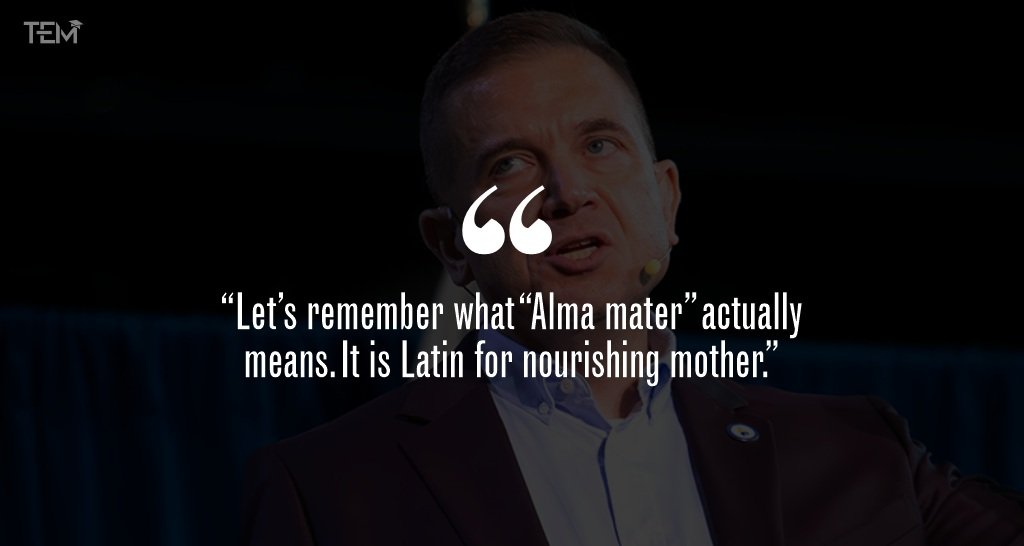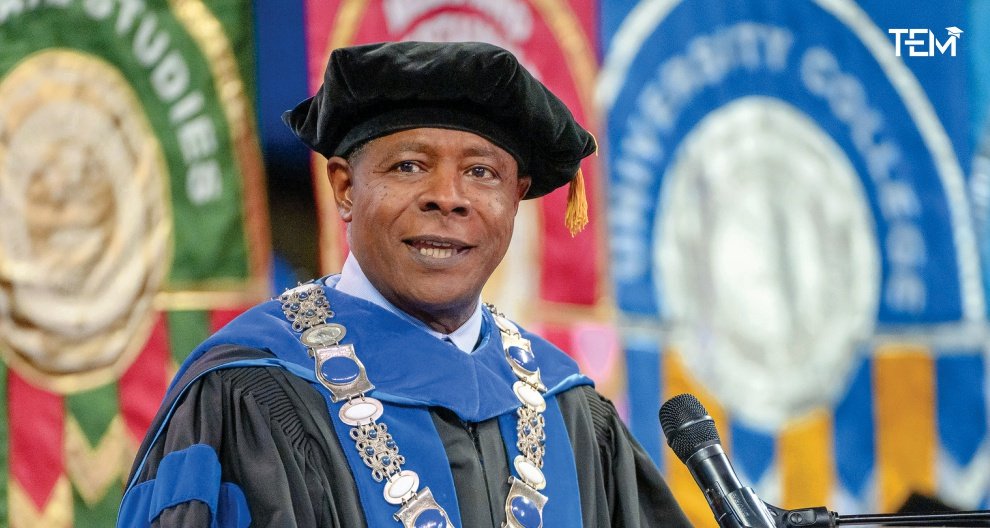Dr. Michael Shannon, President of the University of North Georgia, brings a wealth of experience and a distinguished background to his role. A native of New Jersey and a first-generation college graduate, Shannon’s academic journey began with a bachelor’s degree in aerospace engineering and a master’s in aeronautical science from Embry-Riddle Aeronautical University. He furthered his education with a master’s in health physics and a Ph.D. in nuclear and radiological engineering from Georgia Tech.
Dr. Shannon dedicated 20 years to the U.S. Army, retiring as a lieutenant colonel in 2015. His service spanned various roles, including Infantry and Signal Corps officer assignments with the 82nd Airborne Division, the 35th Signal Brigade, and the 2nd Infantry Division. Notably, he served as a U.S. Army Nuclear and Counterproliferation officer.
His academic contributions are equally impressive. Dr. Shannon served at the U.S. Military Academy at West Point, where he held positions as both an instructor and an assistant professor in the Department of Physics and Nuclear Engineering. Before joining the University of North Georgia, Shannon was a key member of Georgia Tech’s executive leadership team.
Outside his professional life, Dr. Shannon remains actively involved in veterans’ causes, local youth sports, and his church community, reflecting his ongoing commitment to service and leadership.
From Agricultural College to Comprehensive Institution
The University of North Georgia (UNG) began its journey in 1873 as North Georgia Agricultural College in Dahlonega, Georgia, a town known for its gold rush. Initially, the college focused on agriculture and mechanical arts, particularly mining engineering. As the local gold deposits diminished and agricultural education became more widespread, the college shifted its focus to the arts and sciences. Consequently, in 1929, the institution changed its name to North Georgia College.
UNG is Georgia’s second-oldest public university and the first in the state to admit both male and female students. Over time, it adapted to the needs of its community, evolving from a small college into a comprehensive institution. In 1996, the growth of academic programs and regional influence led to its renaming as North Georgia College and State University.
In January 2013, the university experienced another major change with the merger of North Georgia College and State University and Gainesville State College, founded in 1964 as Gainesville Junior College. It provides accessible education in Northeast Georgia, combining academics, athletics, and community service. This merger formed the University of North Georgia, combining the strengths of both institutions.
Today, UNG serves nearly 20,000 students across five campuses, offering a range of programs in healthcare, STEM, business, and the arts, from associate to doctoral degrees. The university maintains a strong commitment to military education, being one of six Senior Military Colleges in the United States and the only one with an all-Army ROTC program. The Corps of Cadets remains central to the university, highlighting its dedication to developing leaders who excel academically and serve their country.
Leadership with Integrity and Excellence
As President, Dr. Shannon guides the university’s strategic direction, aligning its goals with the vision of the Chancellor and the Board of Regents. He oversees all aspects of university operations, from academics to resource allocation, ensuring that each decision supports the institution’s mission.
Dr. Shannon’s extensive military experience influences his leadership. His two decades of service as a U.S. Army officer bring a disciplined approach to his role, focusing on integrity, leadership, and service. At UNG, he promotes a culture that reflects these values, aiming to develop students who lead with honor and character.
Among his professional achievements, Dr. Shannon values two most: his service as an American soldier and his role as President of UNG. Both have allowed him to contribute to his country and community, shaping future leaders while upholding the university’s traditions and mission.
Transforming Teaching Methods
Under Dr. Shannon’s leadership, the UNG has adopted innovative teaching methods and advanced technologies to address the needs of a rapidly evolving economy. He understands the importance of education that goes beyond the traditional four-year model and has taken steps to make UNG a lifelong partner in learning. The university now offers flexible, market-driven programs that help students and alumni continuously update their skills, keeping them competitive in an evolving job market.
One of Dr. Shannon’s key contributions is the “Evergreen Scholar” initiative. This program offers affordable, lifelong education tailored to the needs of the marketplace. It redefines the university’s role, aiming to support students throughout their lives, not just while they are enrolled.
Dr. Shannon captures the essence of this vision, stating, “UNG must be a place where learning never stops. Our goal is to be beside our students and alumni for life, equipping them with the tools they need to tackle what comes next and continue walking toward their purpose.”
Evolving Dynamics in Higher Education
Dr. Shannon has observed significant shifts in academia over the past decade. One major change is the rising demand for accountability. Universities must now provide clear, measurable results and move beyond traditional methods to demonstrate their value.
He also recognizes the growing need for ownership in higher education. Institutions face pressure to operate efficiently and align their programs with market demands, adjusting to new expectations.
Additionally, Dr. Shannon has noted a decline in the number of colleges, which reflects financial and operational challenges in the sector. This trend underscores the importance of sustainability and innovation. For Dr. Shannon, these developments represent a critical opportunity for higher education to focus on delivering meaningful outcomes and evolving to meet future demands.
Blueprint for a Brighter Future
If Dr. Michael Shannon had unlimited resources, he would reshape education by focusing on three key areas that could transform learning. First, he would prioritize perfecting the basics—the “3Rs” of Reading, Writing, and Arithmetic. He believes every student should have a strong foundation in these essential skills. To him, true success begins with ensuring that students can confidently read, write, and work with numbers.
Next, Dr. Shannon would integrate hands-on learning into every classroom. He envisions students actively engaging with concepts through real-world applications, like projects, experiments, and group work. This approach would help students better understand and retain what they learn, making education more interactive and meaningful.
Finally, Dr. Shannon would enhance mentoring in schools. He sees great value in mentors guiding students, especially during high school. These mentors would provide more than academic support; they would help students navigate challenges, explore interests, and discover their potential. Dr. Shannon aims to offer students the support they need to grow both academically and personally.
Key Tips for Supporting a Child’s Education
Dr. Shannon offers three key pieces of advice for parents to support their children’s education. First, he recommends reading to children regularly. Using different voices and a wide variety of books can make reading enjoyable and nurture a child’s imagination.
Second, Dr. Shannon suggests that parents engage their children in discussions and encourage curiosity. Parents can support their children by asking questions and encouraging exploration, which helps develop their problem-solving skills and a habit of discovery.
Finally, he emphasizes the importance of conveying the value of a college degree. Parents should highlight the long-term benefits of higher education, ensuring that children recognize its role in opening doors to future opportunities.
Balancing Family, Passion, and Service
Dr. Shannon values a healthy work-life balance. He prioritizes spending time with his wife, Jessica, and their four children. He also enjoys sports and outdoor activities. In addition, Dr. Shannon values volunteering and service. When his schedule allows, he dedicates time to these activities.
Forging Tomorrow: Dr. Shannon’s Vision for UNG
Dr. Michael Shannon envisions the University of North Georgia evolving into a cutting-edge institution that prepares students to excel in a rapidly changing world. His goal is to shape a university that not only keeps pace with but also anticipates the demands of the future, equipping students with the skills to adapt, lead, and innovate.
To bring this vision to life, Dr. Shannon is focusing on aligning UNG’s strategy with these emerging needs. He plans to foster an environment where students are challenged to question, engage deeply, and overcome obstacles. By emphasizing critical thinking, resilience, and curiosity, he aims to ensure that students are not just learning but truly growing.
Dr. Shannon’s approach includes enhancing the curriculum to reflect real-world challenges and creating a supportive atmosphere that encourages continuous development. His goal is to make UNG a place where students understand the true value of their education and are inspired to achieve their full potential.
Shaping Leaders through Experience and Resilience
According to Dr. Shannon, a leader’s path resembles a foundry, where challenges forge and refine individuals. He sees leadership as a process of continuous development, shaped by the trials and tribulations one faces over time.
He also believes in bridging timeless principles with contemporary perspectives. Dr. Shannon underscores the role of leadership as a unifying force that integrates different eras and viewpoints. He draws inspiration from the idea that leaders, like iron sharpened by iron, are shaped through their interactions and experiences with others. His philosophy reflects a commitment to cultivating leaders who are resilient, adaptable, and capable of managing complex challenges.
Quotes

Also Read: The 10 Inspiring Education Leaders, 2024


